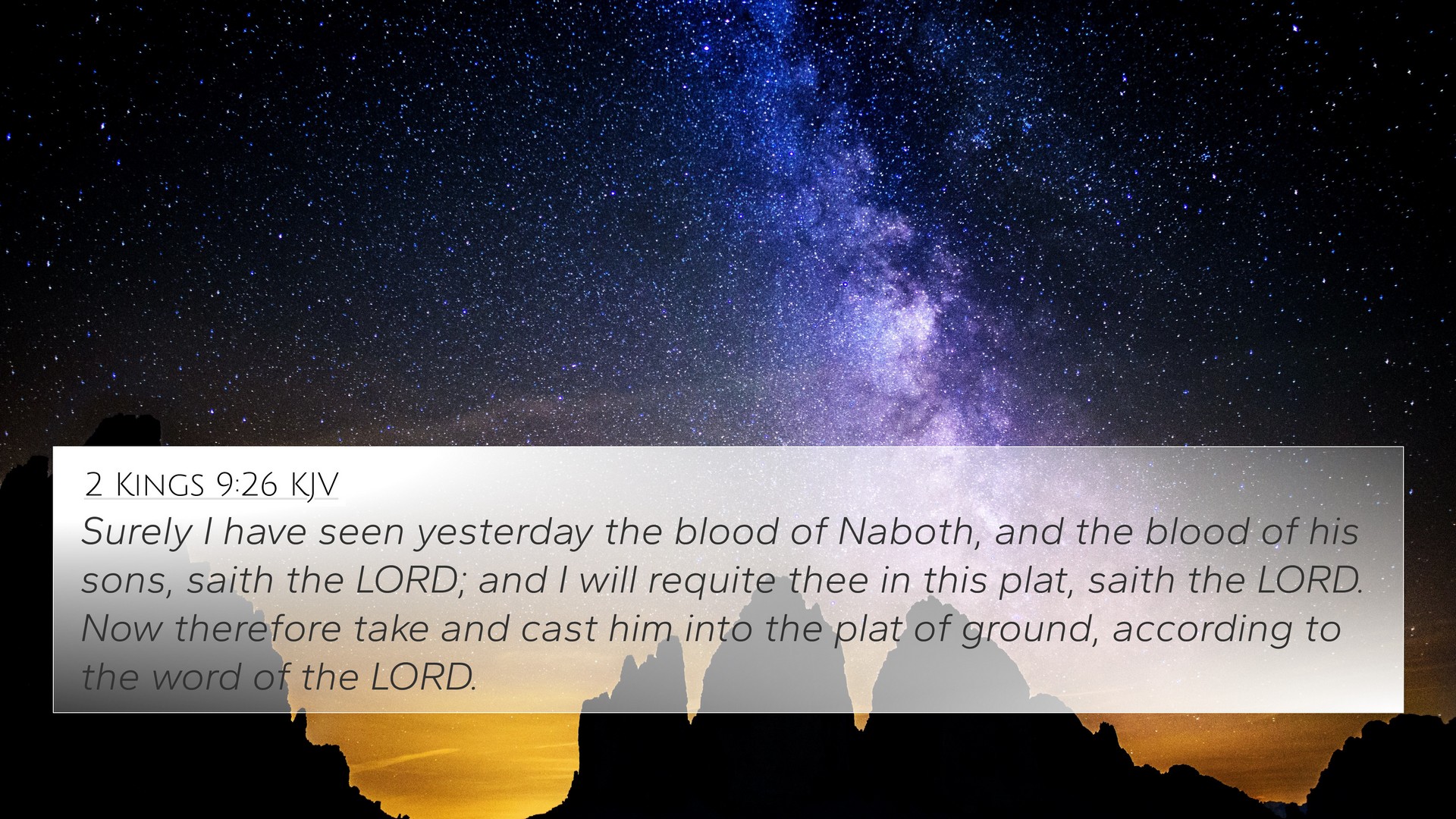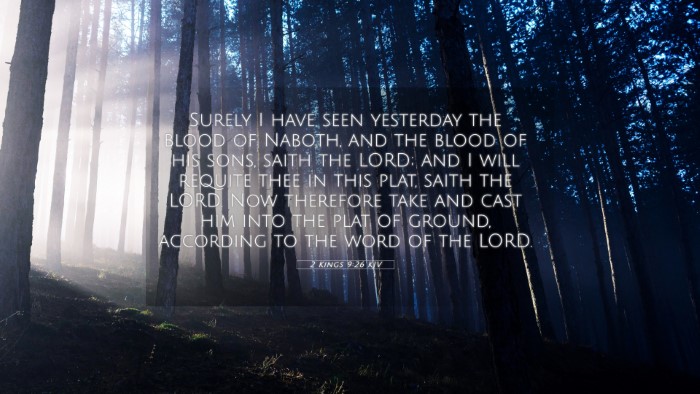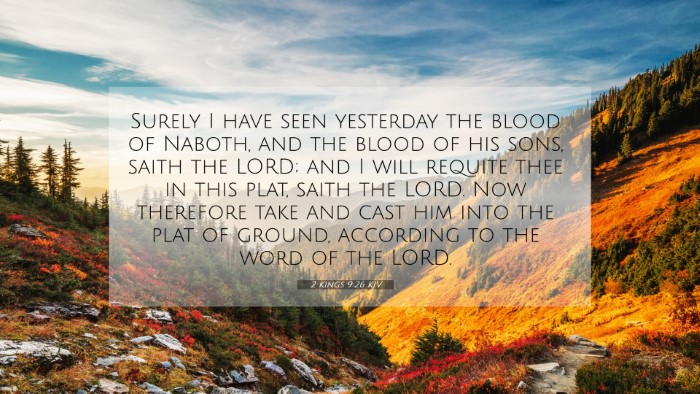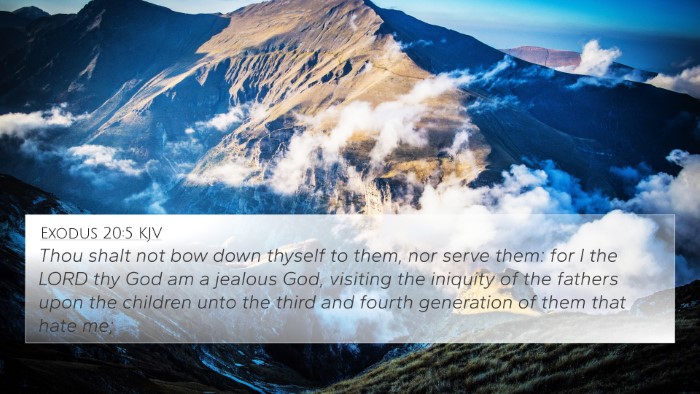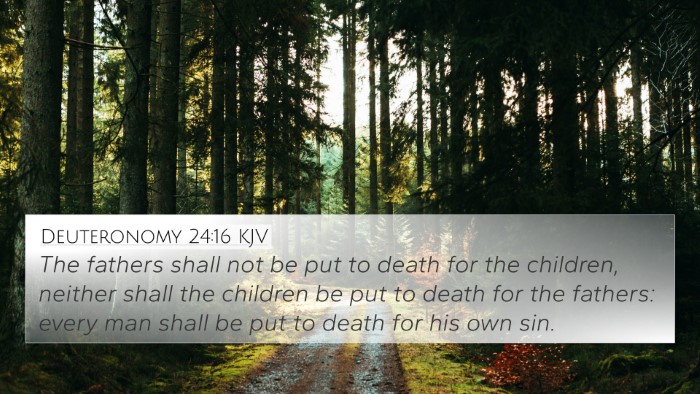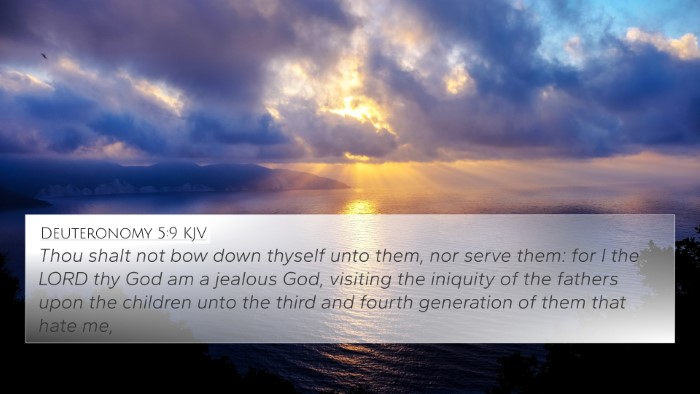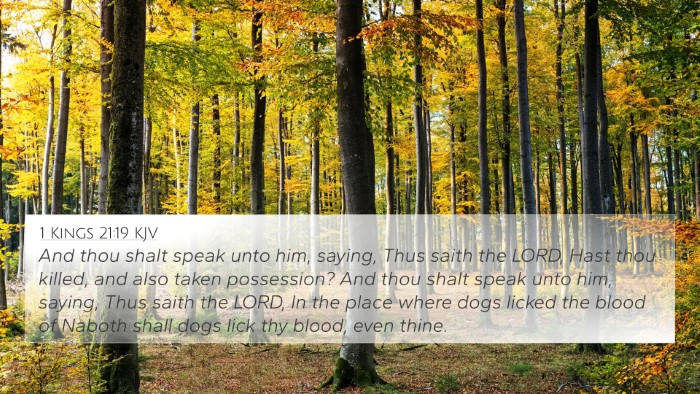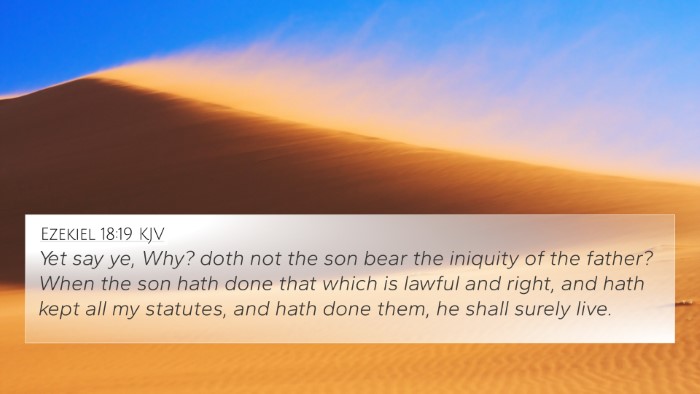Understanding 2 Kings 9:26
Verse: "Surely I have seen yesterday the blood of Naboth, and the blood of his sons, saith the LORD; and I will requite thee in this plat, saith the LORD. Now therefore take and cast him out of the plat, and slay him." - 2 Kings 9:26
Summary of Meaning
This verse represents a pivotal moment in the narrative of judgment against the House of Ahab due to the grievous sin committed against Naboth and his family. God’s declaration emphasizes both His awareness of injustice and His intention to enact divine retribution.
Commentary Insights
-
Matthew Henry's Commentary
Matthew Henry emphasizes that this expression reflects God's justice, indicating that though Ahab might have thought himself secure, the Almighty sees all injustices. Naboth's martyrdom was not overlooked, and God's promise serves as a reminder that He will avenge the innocent. The ordering of Naboth's sons' execution indicates the depths of Ahab's wickedness.
-
Albert Barnes' Notes
Albert Barnes highlights the urgency of the Lord’s message. It demonstrates the interconnectedness of sin and judgment. The phrase “blood of Naboth and his sons” indicates collective guilt and foreshadows the calamity that befalls Ahab's house. Barnes further notes the prophetic nature of this directive, pointing towards the inevitable divine retribution destined for Ahab’s acts of treachery.
-
Adam Clarke's Commentary
Adam Clarke observes that this verse reveals God’s punitive measures against the aggressors. The command for execution is a reflection of God's demand for justice; He does not idly watch the suffering of the righteous. Clarke stresses that such messages were typical in prophecy, vindicating God's truthfulness and unwavering judgment against sin.
Bible Cross References
- 1 Kings 21:13: "And there came in two men, children of Belial, and sat before him: and the men of Belial witnessed against him, even against Naboth, in the presence of the people, saying, Naboth did blaspheme God and the king. And they carried him forth out of the city, and stoned him with stones, that he died." - This passage highlights the injustice Naboth faced, foreshadowing the judgments tied to his death.
- 2 Kings 9:6: "And he arose, and went into the house; and he poured the oil on his head, and said unto him, Thus saith the LORD God of Israel, I have anointed thee king over the people of the LORD, even over Israel." - This verse connects the anointing of Jehu to the divine judgment context, signifying God’s plan for retribution through a new king.
- Hosea 1:4: "And the LORD said unto him, Call his name Jezreel; for yet a little while, and I will avenge the blood of Jezreel upon the house of Jehu, and will cause to cease the kingdom of the house of Israel." - This highlights the ongoing theme of blood vengeance and the consequences of Ahab’s actions.
- 2 Samuel 1:16: "And David said unto him, Thy blood be upon thy head; for thy mouth hath testified against thee, saying, I have slain the LORD's anointed." - A similar theme of divine judgment against the slayer, emphasizing accountability for injustice.
- Galatians 6:7: "Be not deceived; God is not mocked: for whatsoever a man soweth, that shall he also reap." - Reflects the principle of divine recompense applicable across both covenants, linking contemporary actions to future accountability.
- Revelation 16:6: "For they have shed the blood of saints and prophets, and thou hast given them blood to drink; for they are worthy." - This verse parallels the judgment theme portrayed in 2 Kings 9:26, where the bloodshed of innocents leads to divine retribution.
- Romans 12:19: "Dearly beloved, avenge not yourselves, but rather give place unto wrath: for it is written, Vengeance is mine; I will repay, saith the Lord." - Reinforces the biblical principle of trusting God for justice, resonating with the divine vengeance displayed in 2 Kings.
Thematic Bible Verse Connections
The connections drawn from 2 Kings 9:26 not only encapsulate God’s judgment against Ahab’s sins but also resonate throughout the Scriptures, portraying themes of divine justice, retribution, and the grave consequences of sin. The intertwining of these narratives builds a comprehensive understanding of biblical justice, manifesting in various forms as highlighted in the noted cross-references.
Conclusion
In studying 2 Kings 9:26, one perceives a cohesive narrative that underscores the importance of justice in God's kingdom. The careful compilation of various commentaries illuminates the profound theological implications inherent in this passage. For those seeking to deepen their understanding of Scripture, exploring connections between this verse and others enhances the reader's journey through God's Word.
Tools for Bible Cross-Referencing
Utilizing a Bible concordance or a cross-reference Bible study guide can significantly enhance your understanding of scriptural interrelations. Through systematic cross-referencing, one can uncover profound insights and contextual meanings that enrich one's spiritual journey.
